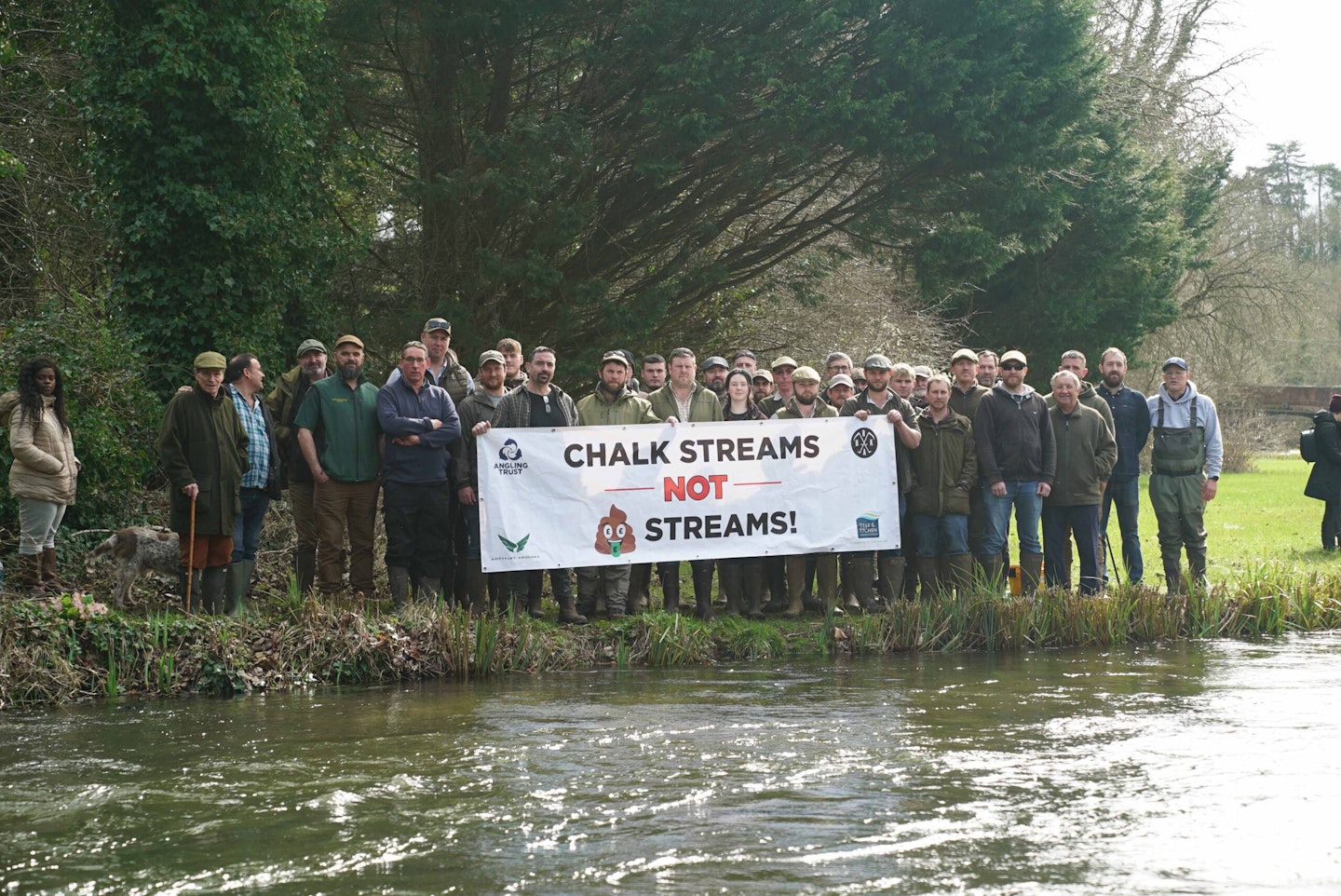Despite rivers around the country struggling with low water levels, Southern Water has recently applied for a Drought Order Form the government that would allow it to abstract large volumes of water form the historic River Test.
Chalk streams, like the Test, are incredibly important habitats that are of utmost ecological significance to fish such as salmon and various invertebrates and wildfowl. Such is their rarity, there are only 200 officially recognised chalk streams in the world, 85% of which are in the UK.
The River Test is widely regarded as the premier chalk stream, also carrying a Site of Special Scientific Interest status (SSSI). Yet despite its precious status, water companies like Southern Water, that have already inflicted so much damage onto waterbodies like this through pollution incidents, now want to reduce water flow by up to a third to cope with demand, it has been revealed.

Southern Water is licensed to abstract water from the River Test. Under the terms of the Licence, Southern Water is allowed to abstract a maximum quantity of 29,200 Megalitres per year, 80 Megalitres per day or 3.5 Megalitres per hour, subject to the Total Test Flow (“TTF”) remaining above the Hands off Flow (“HoF”) of 355 Megalitres per day. The proposed Drought Order will involve an amendment to the Licence to reduce the HoF condition at the TTF from 355 Megalitres per day to 265 Megalitres per day.
While the hot weather has undoubtedly reduced the amount of water available to Southern Water, they lose an astonishing amount as their own research shows:
"Between April 2024 and April 2025, we reduced weekly leakage by more than 15%, from 108.1 million litres per day to 91.1 million litres per day - saving 17 million litres every day."
Because of their failing infrastructure, the obscene volume of water that is currently being lost through their network of pipes, may mean the ecologically important River Test may come under even more pressure, despite already running at very low levels. This will also further amplify the detrimental effects of pollution discharge incidents from such companies, as less water in the river, will have less chance to dilute the waste that enters.
Stuart Singleton-White, the head of campaigns at the Angling Trust, had this to say:
“No one should be surprised by the drought this year, so soon after the drought in 2022."
"This has been predicted, and in a changing climate will happen more often. But water companies weren’t ready."
"They have failed to build the storage and reservoirs we need, failed to fix the leaking pipes and failed to do enough to help us save water.”
Steve Reed, the Environment Secretary, recently pledged to reduce pollution incidents and help improve the health of our rivers:
“This Government will halve sewage pollution from water companies by the end of the decade."
“One of the largest infrastructure projects in England’s history will clean up our rivers, lakes and seas for good.”
He has now come under pressure as the licence has to be applied for via his department, with various groups calling upon him to prohibit the extra abstraction and deny the drought licence to prevent what they feel is a catastrophe waiting to happen.

